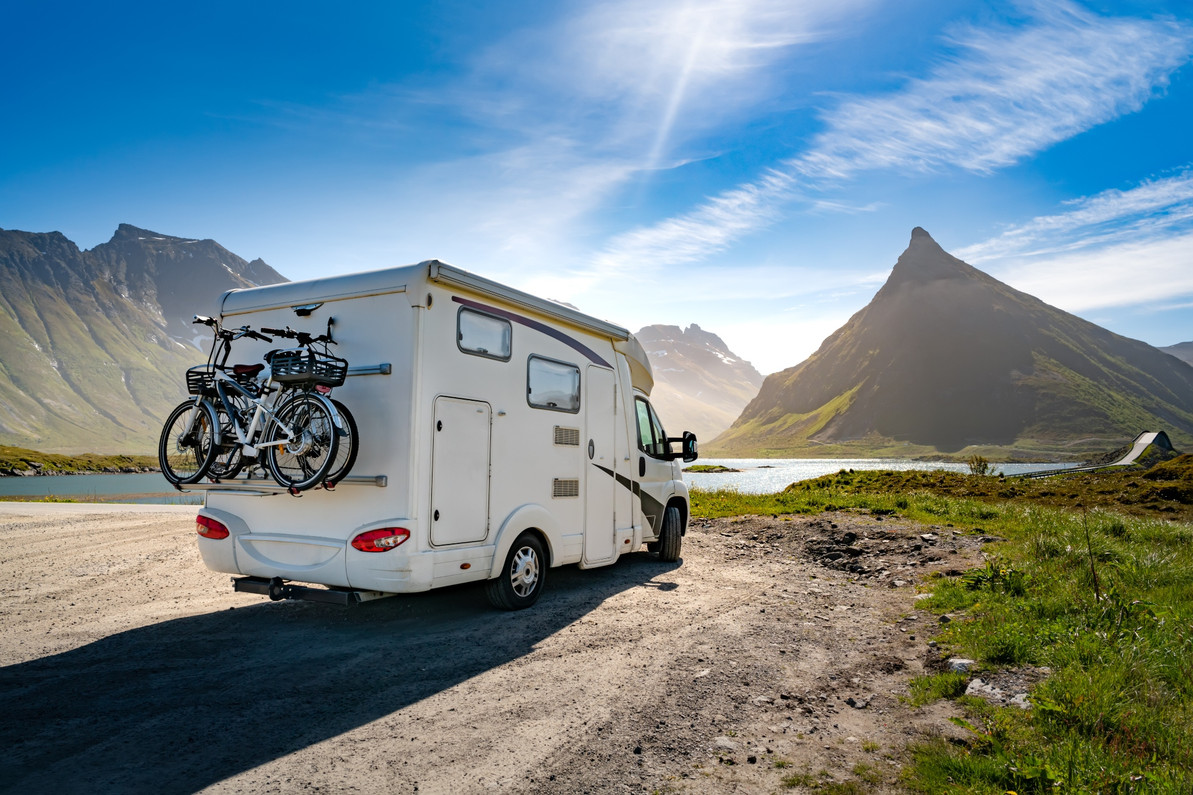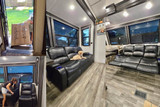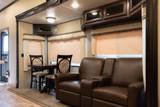Establishing Domicile as a Full-Time RVer
For most people, establishing a domicile is not really a choice but rather a designation based on the state they live in. This is not the case, however, for full-time RV travelers. Establishing a domicile is a necessary and essential step in full-time RV living to remain compliant with tax liabilities, access your right to vote, receive certain benefits, and more. This article will present the crucial legal distinction between residence and domicile, examine the importance of establishing a domicile, and cover the basic steps.
Residence vs Domicile
Residence and domicile are similar in that they describe someone’s home or the place they live. The difference between these two terms is primarily a legal distinction implying that a residence is any place an individual may inhabit or live in. At the same time, a domicile is an individual’s primary residence that is defined for “the purposes of judicial jurisdiction and governmental burdens and benefits” (Britannica). Your domicile is your permanent residence or the residence that you intend to return to.

Types of Domicile
There are technically three types of domicile that are recognized under US common law: domicile of origin, domicile of choice, and domicile by operation of law.
Domicile of origin is acquired at birth and is based upon the domicile of both parents. Once legally capable, domicile of choice is applicable and typically will be legally inferred based on where you live, work, and own/rent property. If you live in multiple states or travel full-time, your domicile cannot be legally inferred, and you must take steps to establish a domicile.
Domicile by operation of law is imposed by law, as the name suggests, and usually applies to individuals that lack the ability to exercise domicile of choice. It is also sometimes referred to as “domicile of dependency.” Those under 16 and those with certain disabilities are unable to acquire a domicile of choice and are thus subject to domicile by operation of law.
Why Establish Domicile?

Establishing a domicile is a necessary aspect of our current social construct. Your domicile serves an essential legal function and determines where you pay taxes, vote, file lawsuits, claim benefits, and oblige governmental burdens. Without an accurately established domicile, you could have difficulty voting, be unable to participate in social security, or invalidate insurance coverage.
Basic Steps of Establishing Domicile
Since domicile cannot easily be inferred for individuals with multiple homes or who travel full-time, they must take active steps to establish domicile and fulfill necessary obligations. If you are in the somewhat unique situation of choosing and establishing your domicile, keep the following tips in mind!
Step 1 - Obtain a Mailing Address in the State & County of Choice
For those who have multiple permanent residences and need to establish a domicile, obtaining a mailing address isn’t as much of an issue as choosing which one will be your primary residence. Consider factors such as income tax assessment, state laws and protections, and vehicle registration, among others.

Obtaining a mailing address can be a bit more difficult for those who travel full-time and really don’t have a permanent residence. Some full-time RVers have an empty plot of land somewhere to account for domicile requirements and also to have a home base. Now, acquiring a plot of vacant land is more complex than it sounds and is likely not a valid option for everyone. Another option is to join a full-time RV membership organization, as they often have options available for members to address this issue. This could be a PO box or an actual location with plotted mail service, but an actual address will be more efficient for this purpose. Obtaining a mailing address will allow you to complete steps later down on this list.
Step 2 - Connect with the Community
While interacting with your local community isn’t a legal requirement, doing so helps to strengthen your case of established domicile. Legal representation is arguably the most critical connection you should make to get started. A significant purpose of domicile for legal purposes is estate administration. If something terrible happens and you are without a will, your domicile will determine the fate of your estate. Meeting with a lawyer to get these details in place isn’t fun, but it can save you and your loved ones from major headaches down the road.
Beyond finding legal representation, establishing yourself as a patient with a local doctor or dentist is helpful for your domicile case and can also benefit your health. Neglecting regular preventative care can often be a side effect of full-time traveling, but it doesn’t need to be.
Step 3 - Visit the DMV/MVD/SOS

Every state has a different name for its licensing and registration bureau. Still, they typically share the same function as the place you go to obtain a state ID/driver’s license, register to vote, and get your vehicles inspected. It would be best if you did all of these things in the county you are establishing a domicile.
Step 4 - Complete an Affidavit of Domicile
An additional step you can take to establish a domicile is to declare such via an affidavit legally. An affidavit is a written statement that confirms a verbal statement and can be used as evidence in a court of law. If your domicile is difficult to infer based on your everyday actions, creating an affirmation of your intent can help ensure that your domicile is correctly established.
Step 5 - Spend Time at Your Domicile
Since a domicile technically represents your primary and permanent residence, it is implied that you spend most of your time there. This obviously isn’t true for those that travel full-time, but that doesn’t necessarily mean it doesn’t apply. The amount of time you need to spend at your domicile each year is dependent upon local legislation and thus is dependent upon your domicile location and local regulations. You should plan a trip to your domicile location at least once a year, and maybe more to fulfill local requirements.
Are you a full-time traveler that had to establish a domicile? How did you go about it? Let us know in the comments!
Recent Posts
-
Traveling to the RV Hall of Fame in Elkhart, IN
If you are traveling to Elkhart, IN to see the RV Hall of Fame, getting off the toll road at exit 96 …Nov 14, 2025 -
Best RV Air Conditioners of 2025: An Expert Guide From RecPro
Quick Answers Best overall RV air conditioner: RecPro 15K Quiet AC with Heat Pump (RP-AC3800) Best f …Oct 29, 2025 -
The Nuclear Nomads Expand Sofa with New Recliner Section Install
The Nuclear Nomads are a full time RV family living in south Florida. Andi and Joey value quality ti …Oct 24, 2025 -
Trailer Wiring Guide: How to Wire Your Trailer for Safety and Efficiency
Table of Contents 1. Common Types of Trailer Connectors 2. Trailer Wiring Diagrams: Color Codes and …Aug 20, 2024 -
How to Keep Your Pets Safe While Camping
RVing and camping are a great getaway from the hustle and bustle of work and the city and the day-to …Jul 02, 2024 -
Why Replace Your RV Furniture?
You may wonder when is the best time to replace your RV furniture. There is no one right answer to t …May 20, 2024







